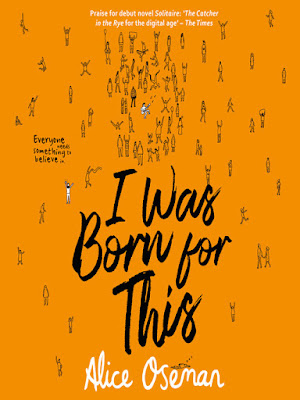Book Review: In the Dream House By Carmen Maria Machado
In the Dream House
By Carmen Maria Machado
Finished reading: 22/08/21
My rating: 3.5/5 stars
“We deserve to have our wrongdoing represented as much as
our heroism, because when we refuse wrongdoing as a possibility for a group of
people, we refuse their humanity […] It’s not being radical to point out that
people on the fringe have to be better than people in the mainstream, that they
have twice as much to prove. In trying to get people to see your humanity, you
reveal just that: your humanity. Your fundamentally problematic nature. All the
unique and terrible ways in which people can, and do, fail.”
In the Dream House is an unusually abstract and
innovative memoir presenting Machado’s experience as a victim of an abusive same-sex
relationship and the hidden and untraceable discourse surrounding specifically
cisgender lesbian relationships. Machado presents the archives of her memory alongside
archives of queer history using different narrative lenses of fairy tales and various
literary conventions and clichés.
I truly admire Machado’s bravery and talent that went in to
producing this wonderfully creative and heart-wrenching project. It feels wrong
of me to rate and review a victim’s experience of abuse as it feels as though I
am criticising their memory. Regardless of my opinion on this book, it is undeniably
an important piece of literature to exist for anyone who has ever experienced
abuse, but more importantly, anyone within the LGBTQIA+ community who has ever
felt invisible as a victim of abuse. I hope that these pages allow these
individuals to be seen and have catalysed a mission for this gap in queer
history to be filled.
Considering this is the first memoir I have ever read, I
thought Machado’s use of structure and narrative voice challenged my expectations
wonderfully. I loved the repeated references to Thompson’s Motif-Index of
Folk Literature as this is something I have previously studied and been fascinated
by. It gave the story a timeless feel, emphasising how humans have and most
likely always will suffer at the will of another. Whether it’s Bluebeard, Star
Trek, Gaslight or one of the many other stories Machado presents, abuse and
manipulation have this universal quality despite the differences in individual
experiences. Many of the literary references were so rich and complex that most
probably went completely over my head. However, the ones I identified added an
extra layer of meaning to the overall story and I truly appreciated the detail
and level of research reflected in every page alongside Machado’s personal
memories.
Machado discusses the relationship between memory and place
so vividly and creatively by exploring different methods of storytelling. I particularly
enjoyed the choose-your-own-adventure element and the part this played in
representing Machado’s psychology at the time of the events. Whilst both
shocking an uncomfortable to read, it also had a very playful and bouncy quality.
I admire Machado’s confidence and masterful flair as a writer. It is this that
draws me to her writing and keeps me reading.
Despite the playfulness of the prose, I found the novelty
began to wear off about halfway through the book. The beginning felt compelling
and unusual but somehow lost momentum as it progressed. I understand the
importance of the repetition in terms of representing the mental processing of
trauma, however, as a reader, it felt a little too repetitive for my liking. The
fragmentation was clever at relating to Machado’s emotional state, but, as a
reader, felt a little messy and tricky to keep up with. I honestly found myself
feeling almost relieved to finish it because I had lost interest towards the
end.
Having said this, I fully appreciate this as an important
piece of literature and completely respect Machado as a writer, but I would be
lying to say I enjoyed every page. I wasn’t quite sure what to expect out of
this book, but somehow it didn’t live up to whatever idea of it I had in my
head. For this reason, I enjoyed it, but was not blown away like so many others
seemed to be. This was unfortunate but I am still grateful to have read it and
know that the themes will stick with me.




Comments
Post a Comment